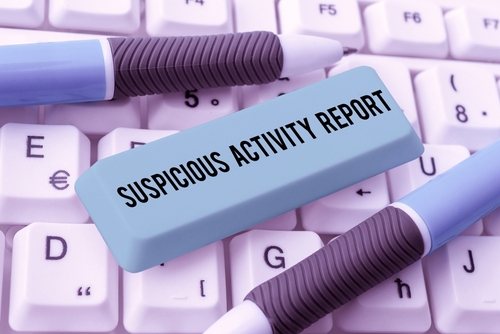
There’s been a significant rise in the number of so-called Suspicious Activity Reports concerning money laundering and the agency industry.
Suspicious Activity Reports (SARs) alert law enforcement to potential instances of money laundering or terrorist financing, and are submitted by financial institutions and other professionals such as agents, solicitors and accountants.
A statement from the National Crime Agency (NCA) says SARs “provide information and intelligence from the private sector that would otherwise not be visible to law enforcement. SARs can also be submitted by private individuals where they have suspicion or knowledge of money laundering or terrorist financing.”
New the SAR Annual Statistical Report 2023 reveals that the SARs figures for estate agents have increased by 21.7% year on year, from 780 reported in 2021-2022, up to 950 in 2022-2023.
The most common techniques for laundering money are:
- Third party proxy: Using a third party or proxy to make the purchase on behalf of the real buyer, avoiding the link between the property to the criminal in official records;
- Irregular sale prices: An irregular sale price with a buyer paying significantly above or below market value can be considered a red flag – a transaction like this can allow larger sums to be laundered through mortgages, while undervaluing lets surplus illicit cash change hands separately;
- Obfuscated Source of funds: The source of funds used for a deposit or fees may seem suspicious – for example large amounts of physical cash with no paper trail. If funds are coming from an unrelated third party or foreign account, more questions should be asked;
- Location of the buyer: A buyer purchasing property located in a high-risk territory purchasing property where they neither live nor work for no clear reason can be a red flag. This distance makes it harder for authorities to uncover connections between parties;
- Shell companies and trusts: A buyer might be using a shell company or trust to purchase and hold properties on their behalf. These entities can help conceal the true ownership of the properties, making it difficult for authorities to trace the illicit funds back to the perpetrators. It pays to look at beneficiaries and trustees carefully - if it’s a family trust, are they all family, or are there unexplained people in the mix?;
- Cash transactions: Criminals may use large amounts of cash, or direct bank transfers,to purchase properties outright or to make significant down payments, making it harder for authorities to trace the funds' origin;
- Related parties: Frequent buying and selling between related parties is a potential sign of cycling funds through property to appear legitimate.
According to one organisation in the anti-money laundering sector - Credas Technologies - the identification of these warning signs early, allows agents to conduct enhanced due diligence, ask more questions and potentially file a SAR with the NCA
Credas chief executive Tim Barnett says: “It’s easy to slip into thinking that AML checks are a box-ticking exercise, but money laundering and financial crimes have real victims that are only a few steps removed from the money that is being transacted. Identity verification is a crucial part of the risk-based approach that companies in the regulated sector are obligated to take under the Money Laundering, Terrorist Financing and Transfer of Funds (Information on the Payer) regulations 2017.”












.png)


.jpg)
.jpg)





%20-%20IMAGE%20Client%20Accounting%20%E2%80%93%20what%20are%20your%20options.jpg)


.png)
.png)
.png)
%20(002).png)






%20(002).jpg)



.png)




Join the conversation
Jump to latest comment and add your reply
Bound to be an increase based on the huge fines recently imposed for not reporting. Lets hope they catch some of the terrorist, arms and drug dealers.
Why are Agents subject to AML regulations when Solicitors do this as part of conveyancing process, and WHY doesn't AML and Redress scheme membership apply to Property Sourcers.
Far too much AML on agents. Online ID checks for buyers and sellers is enough, we shouldn't need to hold any ID anymore.
For deposits, we just need proof of finance, we don't need to look through the trail of where that money came from to appear in a bank balance, the solicitors do that.
Please login to comment